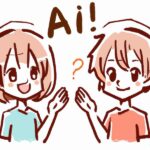My father was an avid reader and book collector. That included encyclopedias and dictionaries. We had the World Book, two editions of Britannicas plus annuals, the Consolidated Encyclopedia and its annuals dating from the 1930s to 1956, the Books of Knowledge, an Oxford dictionary that took pride of place in our den on a custom-made stand with overhead light, and numerous other compendia of knowledge-specific subject mater from science to art to literature. For me, an afternoon of reading in our den was an adventure in discovery.
Today, that adventure of my youth now happens each day because of the Internet, search engines and Wikipedia. Although Britannica and World Book continue to exist online, Wikipedia is the de facto source of encyclopedic knowledge today.
What made me decide to write about this subject today was a story about Wikipedia and how it is holding its own even in the face of artificial intelligence (AI) and large-language-model (LLM) generative AI.
Ina Fried of Axios AI+ writes, “Once seen as a possible casualty of the generative AI boom, and more recently a target of the MAGA right, Wikipedia has emerged as an enduring model.”
I am a regular donor to the Wikimedia Foundation, which helps to keep Wikipedia free and available for all with access to the Internet. Wikipedia got its start in 2001 as an
English-language online encyclopedia. It was called Wikipedia because it was built using a wiki platform designed for web-based multiple users to create, edit and organize content. Wikis allow for collaborative editing by contributors without needing to know HTML or other programming and editing languages. Wiki content is organized using hyperlinks to connect related pages. This makes it user-friendly for navigating the site and exploring subjects thoroughly. Contributors to Wikipedia can add and edit content. The Wiki retains earlier versions of all content, so nothing is lost, and questionable edits can be challenged and corrected.
Wiki platforms serve as an organized knowledge base, providing categorization and specific search capability. The Wiki platform design is simple and intuitive. No technical skills are needed for navigation or collaboration.
Creating a publicly editable encyclopedia was a complete break from tradition back in 2001 and the beginning of the demise of the stalwart publishers that dominated the aggregated knowledge sharing industry, with the first modern attempts to organize information from A to Z in the 18th century. The culmination of aggregated knowledge in the 18th century was the 32-volume French Encyclopédie published between 1751 and 1777, a decade before the French Revolution. Wikipedia follows in that tradition with the distinct advantage of a global network for knowledge sharing. There are 356 language editions of the online encyclopedia. The English-language version is the most popular, receiving more than 97 billion page views. Unlike other encyclopedias, Wikipedia is free to anyone connected to the Internet.
So, how is generative AI perceived as a threat to Wikipedia and other aggregated knowledge online sources? When AI and bots start making knowledge contributions to the Wiki platform, how will human contributors know what is wheat and what is chaff?
AI-assisted and generated content today is filling the Internet. Some of the information produced is hallucination, some is fabricated, some is misinformation or biased, and some is just plain wrong.
Maryana Iskander is the CEO of the Wikimedia Foundation, responsible for Wikipedia. In Fried’s article, she notes that Iskander places a great deal of importance on provenance and attribution and keeping humans in the loop as the sole creators of the encyclopedia’s content.
That means for Wikipedia to remain an important knowledge resource, the Wiki platform needs to continue to provide human fact-checkers with the ability to question, edit, error-correct and remove AI-generated junk. That’s an extra burden on Wikipedia’s contributors, editors and moderators who are volunteers.
Iskander notes that despite the arrival of generative AI tools like ChatGPT, Wikipedia page views have not dropped, stating, “We’ve just become more and more relevant and more and more important.”
So, if you use Wikipedia from time to time, please consider making a donation to the Wikimedia Foundation to keep this global knowledge treasury free and relevant to all in the 21st century.









